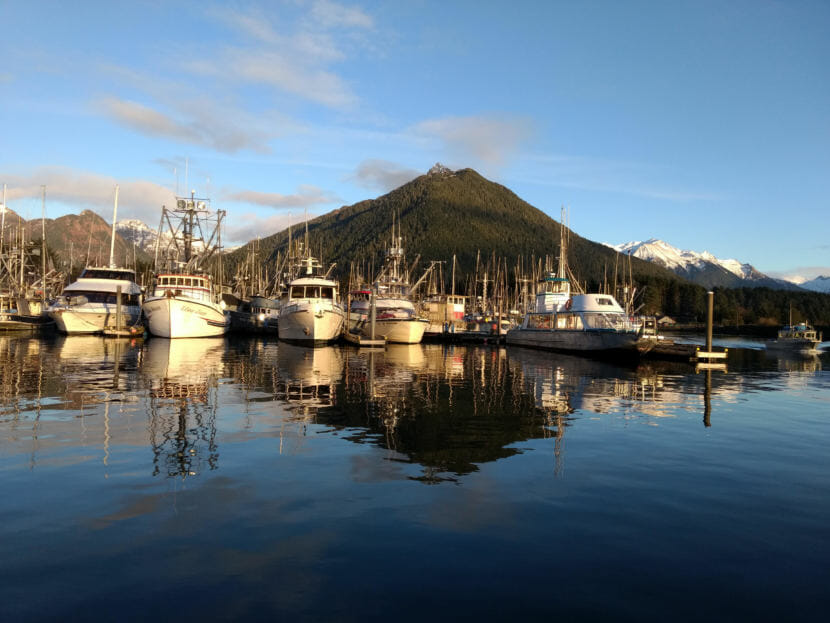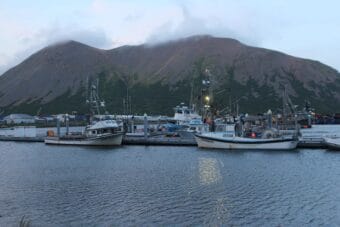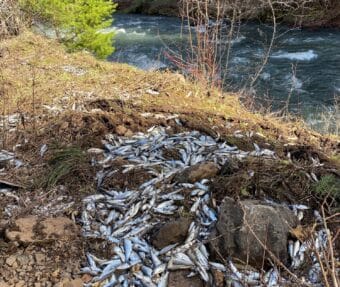
A new smartphone app hit the market last week, with the potential to transform the debate over Alaska’s ocean resources.
The Skipper Science app will allow users along Alaska’s entire coastline to contribute observations about changes in fish and animal populations, which can then be collected and quantified as data for Alaska’s science-based resource management.
Anywhere the Alaska Board of Fisheries meets, there is always a certain amount of frustration among some who testify because their years of experience — sometimes over many generations — don’t seem to carry much weight in data-driven management decisions.
In Sitka this is particularly acute around herring season, where subsistence harvesters have noted drastic declines in the abundance of the species over many decades, while 40-odd years of data collection by the Alaska Department of Fish & Game suggests everything is okay.
“I wonder if all the scientists that are here can figure out what’s going to happen when the herring’s gone,” said Coho clan leader and elder Herman Davis when he testified before the Board of Fisheries in Sitka in 2015.
Skipper Science was created for exactly this purpose. Developed by the Aleut Community of St. Paul Island, it’s a way for Alaska’s harvesters and managers to at least speak the same language.
“How do we take what has historically been called anecdotal and create some structure around it that is rigorous, has scientific repeatability?” asks Lauren Divine, Director of Ecosystem Conservation for the tribal government of St. Paul Island in the Bering Sea.
Divine and a team of collaborators have built the Skipper Science app in an attempt to convert the thousands of informal-yet-meaningful environmental observations by fishermen and others into hard numbers that can be brought to the Board of Fish, the North Pacific Fisheries Management Council or any other agency that makes decisions that impact fisheries.
The idea is that, scaled up over many harvesters, the observations of someone like Herman Davis can carry the weight of scientific data.
“This is the way that, you know, an Indigenous person takes on life and living and engaging in traditional harvests and relationships with the ecosystem. It is very non-quantitative,” she says. “And so we’re very far behind the times really, but yet there’s no weight that’s historically been given and the respect given to the more social science on, and you know, non-western scientific side of things. And so we were really working to, to shift that paradigm.”
Divine and the Aleut Community of St. Paul are not new to this. About 15 years ago the tribal government established the Indigenous Sentinels Network to monitor changes in animal populations and the environment in the Bering Sea. They’ve since developed a half-dozen apps and utilities, one of which is called Citizen Science.
Skipper Science is built on the Citizen Science platform, but the goal is to make it coastwide, “From the Beaufort to Baja,” as Divine says.
To extend their reach, the Aleut Community of St. Paul needed a partner. Enter Lindsey Bloom, who works with the Juneau non-profit, SalmonState.
Bloom works within SalmonState’s Salmon Habitat Information Program — or SHIP. A coastwide advocacy organization, SalmonState and the Aleut Community of St. Paul have similar goals: quantifying informal observations.
“We’ve been working through the SHIP program for many years now to help bring fishermen’s voices and perspective and knowledge and information to the table when it comes to decision making around not only policy and habitat related policy, but we think the information from fishermen can be really helpful in a number of ways to fisheries managers, whether they’re at the state or federal level,” she says.
Bloom and her husband are drift gillnetters. She’s been using the beta version of Skipper Science. The way she explains it, the app takes something that in the past might just have been a few minutes of dock talk after a fishing trip and compiles it into a database.
“It could be a marine mammal sighting, it could be a change in water temperature, that’s unusual. It could be algae blooms. You know, there’s many, many sorts of categories of data that could be observed or reported,” she said. “You’ll just pull up your app, you’ll hit a button that says ‘record an observation.’ In my phone, in my case, it actually just loads in my GPS coordinates right then and there. And I can describe what I’m seeing and how it’s different from what I’ve seen in the past, and perhaps take a picture and upload that as well and send it in.”
The Skipper Science app works anywhere, whether or not it’s connected to the internet. Observations will be cached until users are back in range. Individual observations are also private and password protected, so users can go back in and review past observations. The overall dataset, however, is the property of what Lauren Divine is calling the Skipper Science community. Divine and other researchers will compile it and prepare reports as needed based on the information.
The app is free. Divine has considered the possibility that it will gain traction and explode into an enormous amount of work. She says she’d welcome that event.
“That would be such a dream of mine,” she said. “This is honestly such an untapped area of really rich information that could totally change the way you know that we approach fisheries management from subsistence to personal use to recreational to commercial and it has such amazing potential.”
The Skipper Science app is available for download for both iPhone and Android.



